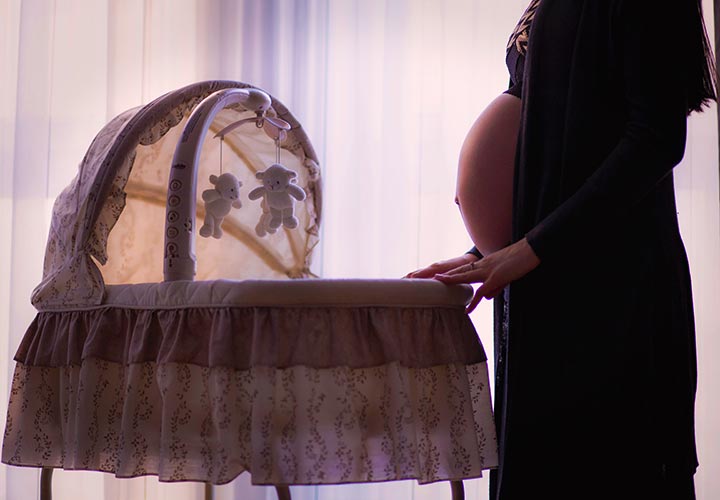The increase blood flow and dilated blood vessels occurs to the extent that even the blood vessels close to the surface of the skin can become dilated and tortuous, thus at this stage of pregnancy more women will complain of hemorrhoid (piles) which is a protrusion of painful blood vessels from the anus. This condition is even worsened by the weight of the pregnant uterus pushing the gut downwards. Piles in pregnancy are self limiting after delivery, but symptoms can be relieved with the aid of suppository (applied though the anus).
Skin changes are noted as there are dilated blood vessels over the chest, shoulders, neck and face of fair skinned individuals. This is known as spider naevi. There are also facial changes in the pregnant women characterized by dark brownish patches over the skin of the nose and cheek in some fair skinned women and lighter patches over the same region in dark skinned women. This is known as the mask (chloasma) of pregnancy. These facial changes are due to the pregnancy hormone and they disappear after the pregnancy. The blood vessels that supply the skin are also dilated and the increased blood supply and increased metabolic rate means that more energy, released in the form of heat is dissipated by the pregnant women and most women sweat profusely. The temperature enhancing effect of the hormone progesterone means that the pregnant woman feels warmer than a non-pregnant person.
At about 24 weeks of pregnancy the dome, of your uterus (womb) should be slightly above the level of your umbilicus (belly button).
The ANC visits are spaced on the average 4weekly; there may be need for you to see your care givers more frequently. Measurement of the blood pressure and urine test is compulsory for all pregnant women. This the only way of detecting elevated blood pressure and protein in the urine, in a condition known as pre-eclampsia, a potentially life threatening condition that will be discussed in detail in the chapter on complicated pregnancies.
For women who live in malaria endemic countries, you will likely be given your first dose of anti-malaria prophylaxis. The recommended combination is sulphadozine and pyremethamine combination given as three tablets at once. This is to reduce to a reasonable extent your chance of having malaria in pregnancy.Other antimalaria drugs used for prophylaxics include paludrine and chloroquine
You may have had your first dose of tetanus toxoid immunization earlier, if not, you will be given tetanus toxoid immunization.You are given tetanus toxoid immunization (TT) to prevent you and your baby from having tetanus. There are five doses of tetanus toxoid immunization that can give you life protection against tetanus. You will likely have about two doses during your current pregnancy. If this is not your first pregnancy, may be you will be given one dose if you had TT in your earlier pregnancy. TT immunization is targeted at women of child bearing age (15-45) and as such you may have completed your immunization before you become pregnant.
Blood supplements are usually given to women during their ANC visit. The usual are iron containing and folate supplements. They are given to help build your blood cells to cope with the extra demand of iron and folate caused by your growing baby and placenta. Women who are noticed to have slightly low blood cells may be given twice the usual dose. Some care givers also add calcium supplements to the usual routine. This may not be necessary if your diet is balanced and rich in calcium. A school of thought even queries the use of blood boosting supplements in women with normal blood cell range (PCV – packed cell volume) and good nutrition.

